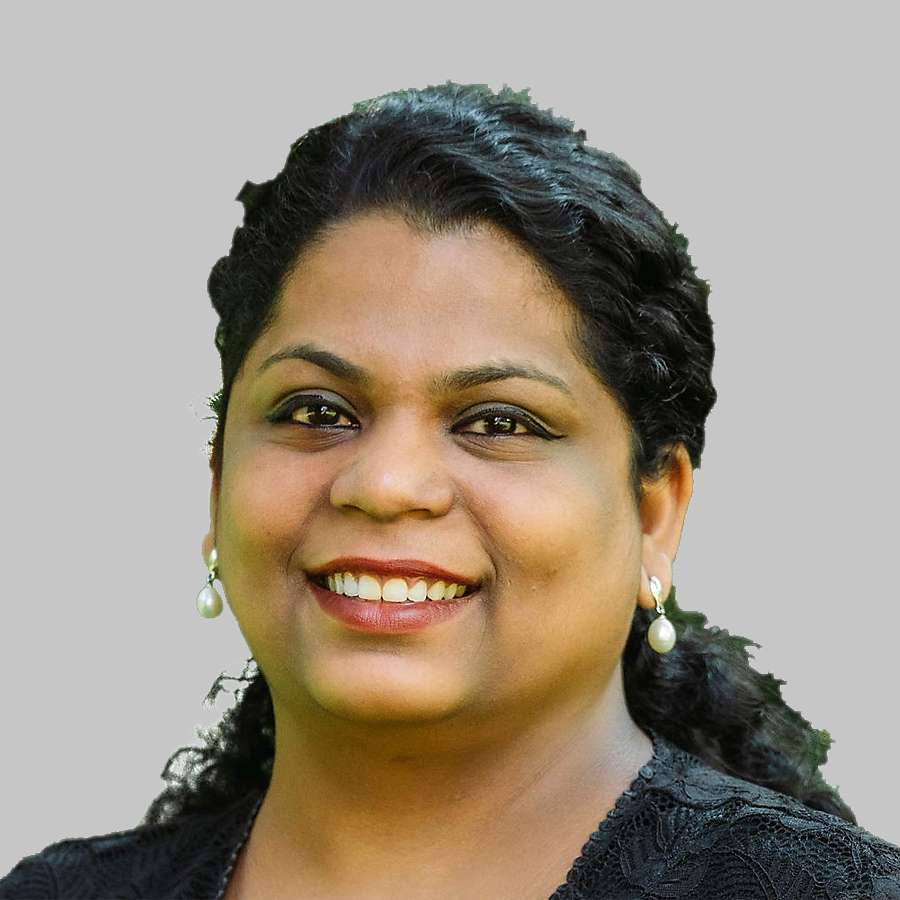The THRIVE project expresses its heartfelt appreciation to Lia Golledge, Radhika Raghupathy and Khusshboo Mehta for their insightful presentations at the May 2024 Thrivability Matters Webinar. We thought you were awesome and well worth listening to. Each subject was interesting and illuminating. The focus of this webinar centered around the United Nations Sustainable Development Goals (SDGs). The theme of May 2024 is on SDG 5: Achieving Gender Equality and SDG 10: Reduced Inequalities. Here are our webinar highlights!
About The May 2024 Speakers

Lia Golledge is the Chief Marketing Officer of Remote Skills Academy Indonesia (RSA), a non-profit education platform that aims to empower the next generation to reskill or upskill with in-demand remote skills such as virtual assistance, digital marketing, and more, enabling them to live life on their own terms.
She is also the co-founder and co-managing director of Girls in Tech Indonesia, aiming to inspire the geek in every girl.
Radhika Raghupathy is a dedicated safety specialist with expertise in creating and implementing effective safety protocols to ensure a secure work environment. Her professional background includes conducting risk assessments, developing safety training programs, and overseeing compliance with safety regulations. She is passionate about promoting a culture of safety and fostering proactive measures to prevent accidents and injuries. Her interests also extend to staying updated on industry standards and leveraging technology to enhance safety practices


Khusshboo Mehta is a curious, value-driven individual passionate about creativity and human connection. Khusshboo’s calling lies in building a thriving community that inspires and empowers women to break free from their limiting beliefs and embrace their true selves. She loves journaling, exploring diverse cultures, and continuous learning. She is working with an international NGO focusing primarily on conserving the environment. On a lighter note, she is a certified German Language Trainer.
Summary Of The May 2024 Webinar
As an organisation, the THRIVE Project endeavor’s to guide humanity towards a more sustainable future. We had the privilege of hosting these three speakers as guest presenters for our webinar.
Lia Golledge on ‘Beyond hard skills – Inspire women to THRIVE in tech’
Lia shared her own story of pursuing a career in technology as one of a very small percentage of women in that field in Indonesia. Her love for writing and desire to become an author led her to put her tech skills to use. She set up several startups to enable online book purchases, online print on-demand and digital storytelling.
At university, Lia was one of just 10% of women on her IT course, of whom only 10% went on to build a career in technology. She questioned why there are so few women in the tech field in Indonesia. Thus, the need for more digital skills training to counter these gender biases and inequalities in the sector. Lia highlighted gender bias at home, lack of access to female-friendly tech training and subconscious bias in hiring tech jobs. In addition, the lack of self-confidence results to this gender disparity in tech. She also observed that over 30% of micro SMEs in Indonesia are owned and managed by women, highlighting their potential as drivers for growth.
To help address these challenges and take advantage of the opportunities for women, she launched the Girls in Tech Indonesia. They developed a holistic approach to digital education for women. It aims to provide hard skills training, soft skills and inspiration through role models.
Radhika Raghupathy on ‘Strategies to address Gender Inequalities through small changes’
Radhika spoke about her own personal experiences of discrimination as an Indian woman working as an Executive Health and Safety Engineer in a male-dominated society and sector. Having faced bias, she is now a strong advocate for diversity and inclusion. Radhika outlined that reducing inequalities, gender or otherwise, is about a fair and just society where everyone has equal access to resources and opportunities, regardless of background. She talked about the three types of inequalities being economic, social, and political. Inequality is manifested as unequal access to education and healthcare, as well as income gaps and racial discrimination.
Radhika spoke about addressing inequalities through strategies that include progressive taxation, social welfare programs, affirmative action policies, and investments in education and healthcare. Governments, civil society, and businesses play crucial roles in implementing these strategies effectively. She cited the Tata Group in India as a good example of an organisation having successfully implemented diversity and inclusion policies.
As a call to action, she encouraged listeners to ensure they have a diversity and inclusion policy in their organisation and to educate themselves about equality and bias in their own lives.
Khusshboo Mehta on ‘Shifting the Focus: Addressing Imposter Syndrome among women’
Khusshboo focused on the limiting effects of ‘imposter syndrome’, which women experience more often than men, and how we can better address this systemic issue in the workplace. She co-founded the organisation Upherladder to challenge women’s limiting beliefs so they can tap into their potential without self-doubt. She went on to talk about how conventional strategies around affirmations and mentoring are great and can be helpful, but don’t necessarily address the root causes. People want to be heard, valued, respected and have a sense of belonging. None of this will work if you’re in a toxic working environment. Hence, subconscious biases need to be considered and addressed.
For Khusshboo, the right approach to addressing imposter syndrome is to move away from systemic issues and bring about systemic change that fosters an inclusive culture by reforming workplaces. We should provide the right environment without bias and discrimination. She gave the example of a program rolled out at Natwest Bank in the UK called #Ownyourimposter which successfully increased entrepreneurial activity among women.
Khusshboo concluded that change can be brought about through bias awareness training, transparent advancement criteria, clear, objective criteria for evaluations and promotions, support networks, and policy reviews. Above all, she said, leaders must lead by example.
Moving Forward From May 2024
The Thrivability Matters Webinar for June 2024 showcased insights from Lia Golledge, Radhika Raghupathy and Khusshboo Mehta in achieving SDG 5 & 10. If you missed the presentations or the live Q&A session, you can view the recording in our channels here or download the PDFs from each of the speakers.
For more information from the THRIVE Project, follow us on social media platforms, such as LinkedIn, X, Instagram, and Facebook. Or subscribe to our YouTube channel, listen to our podcasts, sign up to our newsletter, stay up to date with our blogs, attend our free webinars, or even join us as a volunteer to make an even bigger difference in this world.
Interested in Responsible Consumption and Production?
Want to be kept in the regenerative loop with THRIVE?
Got more questions?
Ask an expert!























